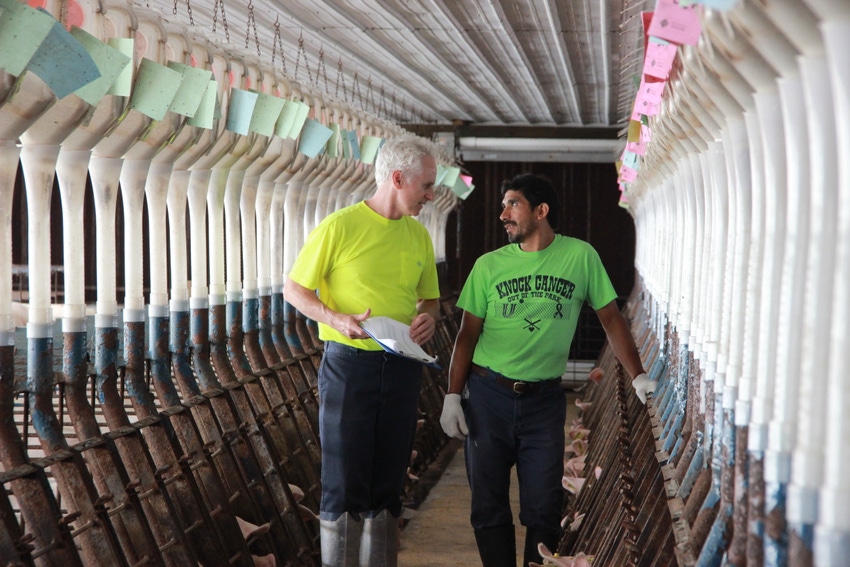Report demonstrates progress made toward food safety, animal well-being, environment, public health and communities.
January 15, 2020

The U.S. pork industry has released a new sustainability report, “Commit & Improve: Pig Farmers’ Approach to Sustainability,” sharing firsthand accounts and data supporting pig farmers’ progress toward sustainability through the industry’s We Care ethical principles. The industry website porkcares.org was also updated to reflect the latest information and resources.
“As pig farmers, we are committed to producing safe food, protecting the environment and caring for our pigs by following the six We Care ethical principles,” said National Pork Board president David Newman, a pig farmer in Arkansas. “These new resources were developed to share relevant information and metrics and to lay a foundation for continuous improvement in the area of sustainability.”
The new report demonstrates the progress pig farmers have made toward the We Care ethical principles: Food Safety, Animal Well-Being, Environment, Public Health, Our People and Communities. Data for the report were gathered from government agencies, the pork industry’s life-cycle assessment and pig farmers from across the country.
Highlights that demonstrate the pork industry’s commitment to the We Care principles include:
Pork production contributes just 0.46% of U.S. greenhouse gas emissions to the atmosphere, according to the Environmental Protection Agency.
More than 71,000 individuals are Pork Quality Assurance Plus certified, representing roughly 85% of U.S. pork production.
The pork value chain has come together to develop and use the Common Swine Industry Audit, which is certified by the Professional Animal Auditor Certification Organization.
The most recent life-cycle assessment, “A Retrospective of U.S. Pork Production,” shows a significant reduction in the use of natural resources during the past 55 years. Per pound of pork produced, U.S. pork producers have reduced land use by 76%, water use by 25%, energy use by 7% and their carbon footprint by more than 7%.
More than 94% of pig farms keep detailed medical and treatment records, which show pig farmers’ commitment to responsible antibiotic use.
In 2018, pig farmers donated 3.2 million servings of food, volunteered more than 54,000 hours and donated more than $5.5 million to local charities.
“The findings in the sustainability report and on porkcares.org not only illustrate our commitment to ethical and sustainable practices but also show our commitment to transparency as an industry,” said Brett Kaysen, assistant vice president of sustainability for the pork checkoff. “We look forward to sharing this powerful story and our continued progress with the global pork supply chain and with consumers around the world.”
The full report can be downloaded at porkcares.org.
You May Also Like

.png?width=300&auto=webp&quality=80&disable=upscale)

